Ms. Hanh Dinh, Hanoi , on May 20 lost nearly 40 million VND due to a transaction through the fanpage of a resort in Ha Long, Quang Ninh. Regularly booking rooms through online platforms, Ms. Hanh booked three rooms through Booking in May and paid 8 million VND by credit card. A few days before the vacation, she wanted to cancel two rooms but the free cancellation period on the application had passed, so she contacted the resort directly to discuss.
Unable to reach the hotel by phone outside of business hours, she turned to Facebook. The page Ms. Hanh found had detailed information, pictures and more than 7,000 followers. The person who replied to the message claimed to be the hotel's accountant and enthusiastically instructed her on how to refund through many steps, asking her to text the fanpage according to the syntax so that the hotel could send her the refund code, including the step of entering the OTP code after accessing the link provided by the fanpage and entering the code in the box to receive money. The staff sent a video instructing the operation, emphasizing that the last part when entering the OTP must be held for a few seconds.

"The sender's code is the amount of money stolen from the account, nearly 40 million VND, while the refund through the platform is only over 5 million VND," said Ms. Hanh, adding that because she wanted a quick refund, she made all voluntary transactions, and only realized that she had been scammed when her account reported that the money had been deducted.
Ms. Minh Huong, Hanoi, said she was almost a victim of a booking scam through a fanpage when she talked to a fake fanpage of a famous resort in Quan Lan, Quang Ninh , with more than 10,000 followers. When she texted to ask for the price for two nights at the end of June, she received a quick response, with detailed pictures and room prices, and a professional and polite response.
"The room rates are only a few hundred thousand cheaper than on online platforms to avoid suspicion," said Ms. Huong, adding that after marketing, the fanpage included the terms and conditions that the booker would enjoy and required a 50% deposit to reserve the room. However, Ms. Huong discovered something unusual in the accompanying incentives such as three meals - rarely available when booking a room, so she did not make the transaction. A few days later, the fanpage was shut down because it was fake.
The Marketing and Communications Manager of a world-leading resort group with 6 resorts in Vietnam said that the group had to deal with about 170 fake fanpages in Vietnam from February to April. They had to notify the Meta representative (Facebook's manager) in Singapore, wait for a month's response, send legal documents to prove it, and still have to manually report each fake channel.
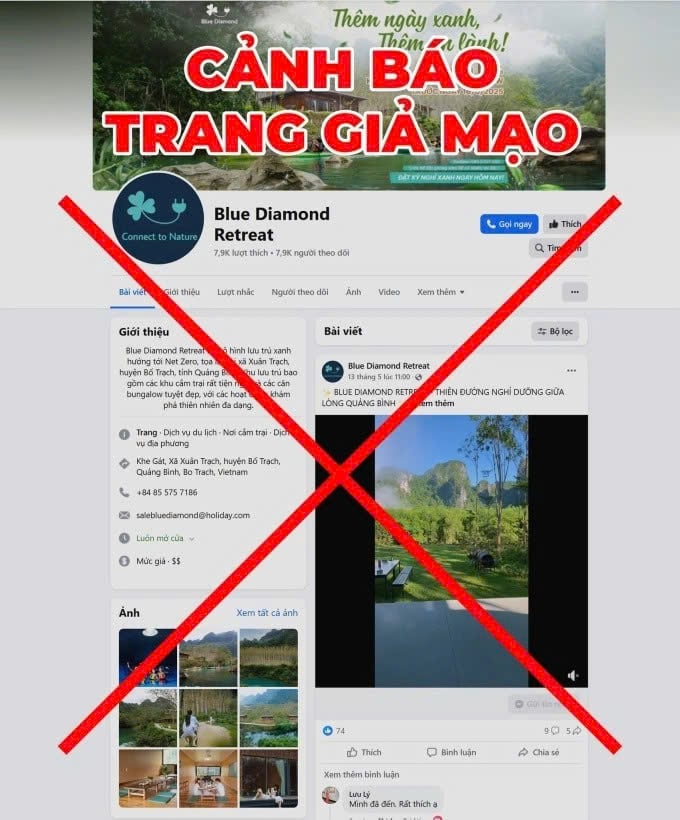
"There are many customer complaints, fake channels are created continuously, one channel is taken down and another appears, the fake channels are all sophisticated, they even fake the blue tick," this person said.
Blue Diamond Retreat, a resort in Quang Binh, also announced on May 19 that it had discovered a fake fanpage with 7,900 followers, using similar names and images to impersonate consultants and receive deposits for room reservations. The resort warned visitors that all booking information, promotions, and consultations are only provided through the website and official channels.
Mr. Nguyen Hoang Thang, co-founder of the non-profit project Anti-Fraud, said that the situation of fraud in the field of online tourism in Vietnam is complicated and tends to increase during peak seasons. According to statistics from the Vietnam Cyber Security Association, in 2024, online fraud in Vietnam caused losses of up to 18,900 billion VND. Fraudsters are increasingly sophisticated, taking advantage of tourists' psychology of wanting cheap prices, lack of experience and subjectivity to commit acts of property appropriation.
Current travel scams often revolve around creating fan pages impersonating major travel brands, hotels, and airlines. Many subjects run ads to reach users, offering tours, discounted air tickets, hotel combos, and air tickets at prices lower than the market.
Two forms of fraud include asking for a service deposit and then appropriating the money, after the customer transfers the money, blocking communication. Sending fake links to steal personal information, OTP codes to take over bank accounts. The most exploited channels are Facebook (through fake ads and fanpages), Zalo (through personal messages) and some via TikTok.
"Many travel fanpages even fake the blue tick (verified sign), making it easy for users to get confused," said Mr. Thang, adding that the blue tick does not guarantee that the fanpage is real and that information must always be checked carefully before trusting or interacting.
Mr. Thang shows three ways to distinguish real and fake fanpages, including channels with verified marks. First, check the information and activity history. Real channels have a clear brand name, a long posting history, professional content, and contact information that matches the official website. Fake fanpages are often newly created, have sketchy content or are prone to spelling mistakes, and unclear contact information.
In addition, find fanpages through the official website, avoid searching by name on Facebook, because fake fanpages often run ads to appear first.
Checking fanpage history (page transparency) includes steps to see creation date, name change history, admin country. Real fanpages rarely change their names and have a clear history. Fake channels often change their names recently or change their purpose from another channel.
According to cybersecurity expert Nguyen Hung, tourists should be wary of search results on Google search websites. "It is very common for scammers to use paid advertising (Google Ads) to put websites at the top of search results, and customers can easily mistakenly access fraudulent websites," said Mr. Hung, adding that when exchanging information on websites from Google search results and requesting transactions via Zalo, there is no basis to ensure safety.
According to vnexpress.net
Source: https://baohanam.com.vn/du-lich/lua-dao-dat-phong-qua-mang-ngay-cang-tinh-vi-165025.html


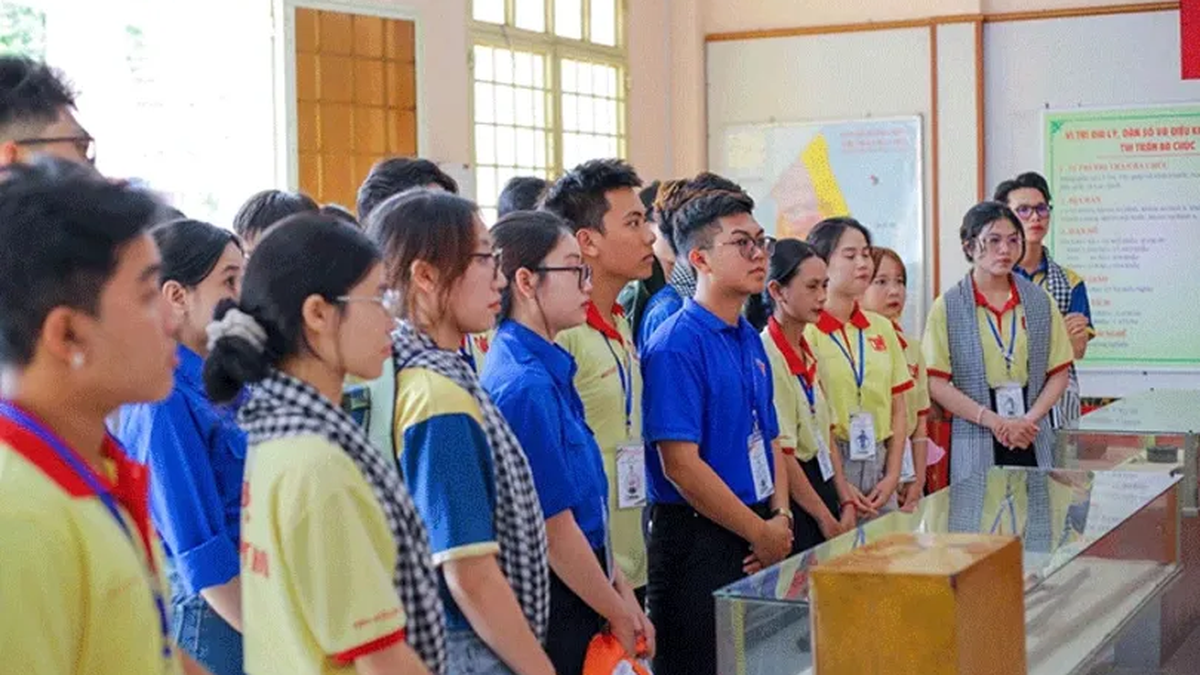

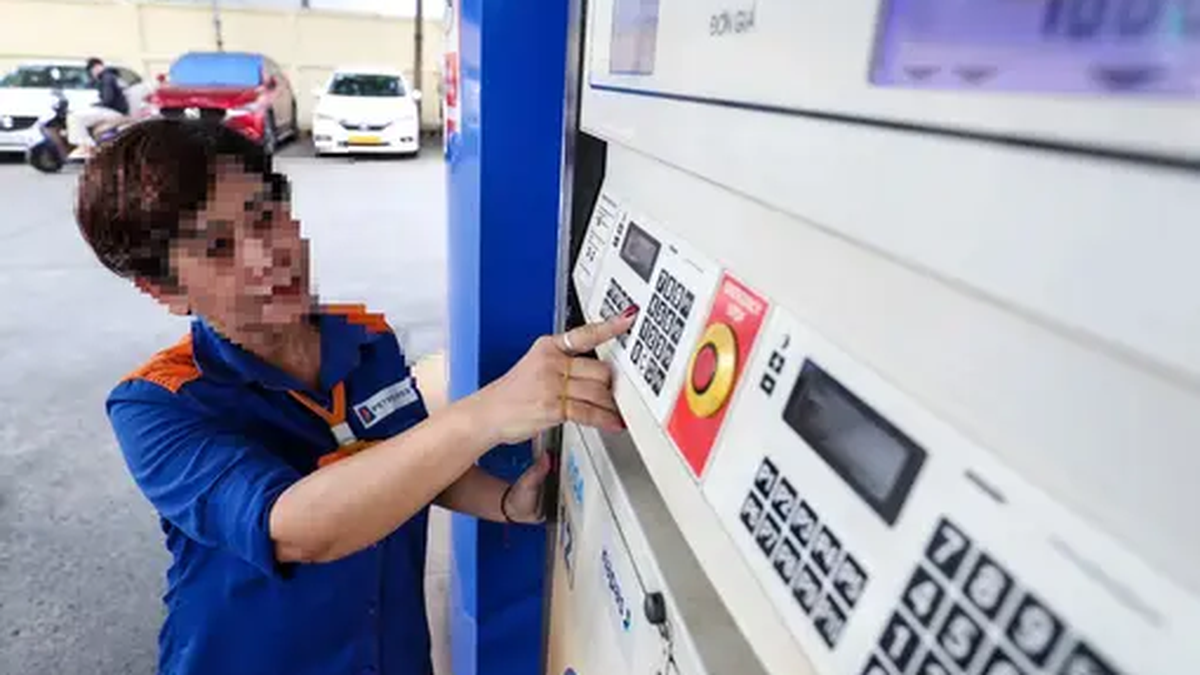

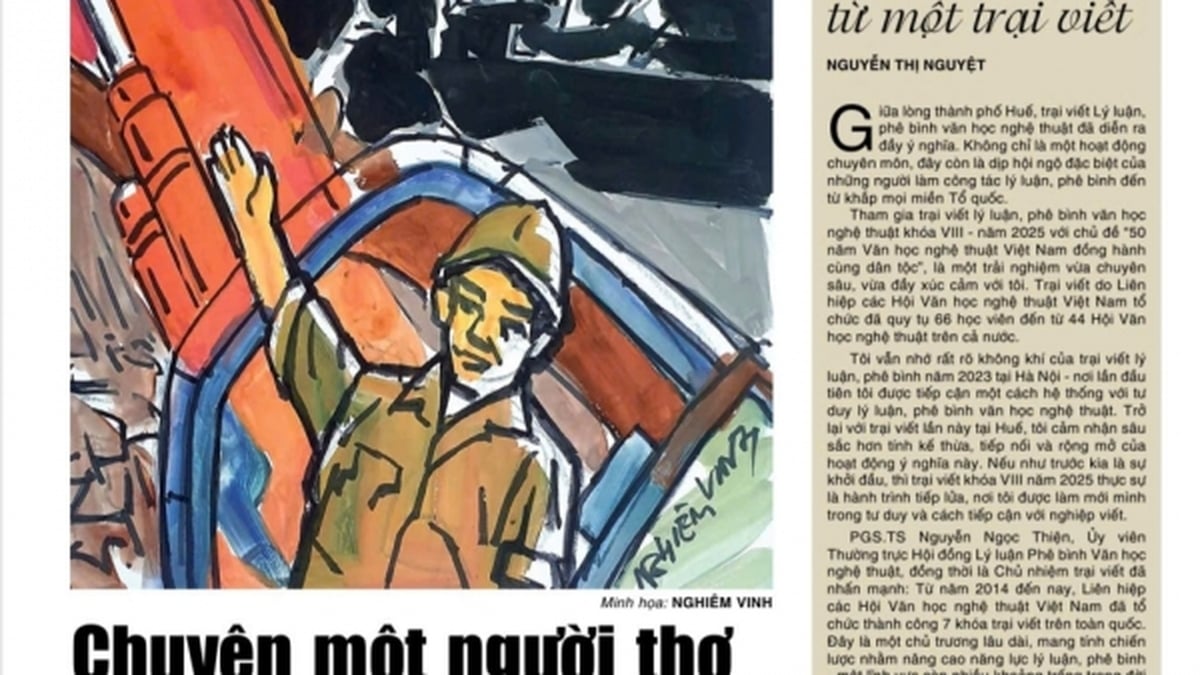

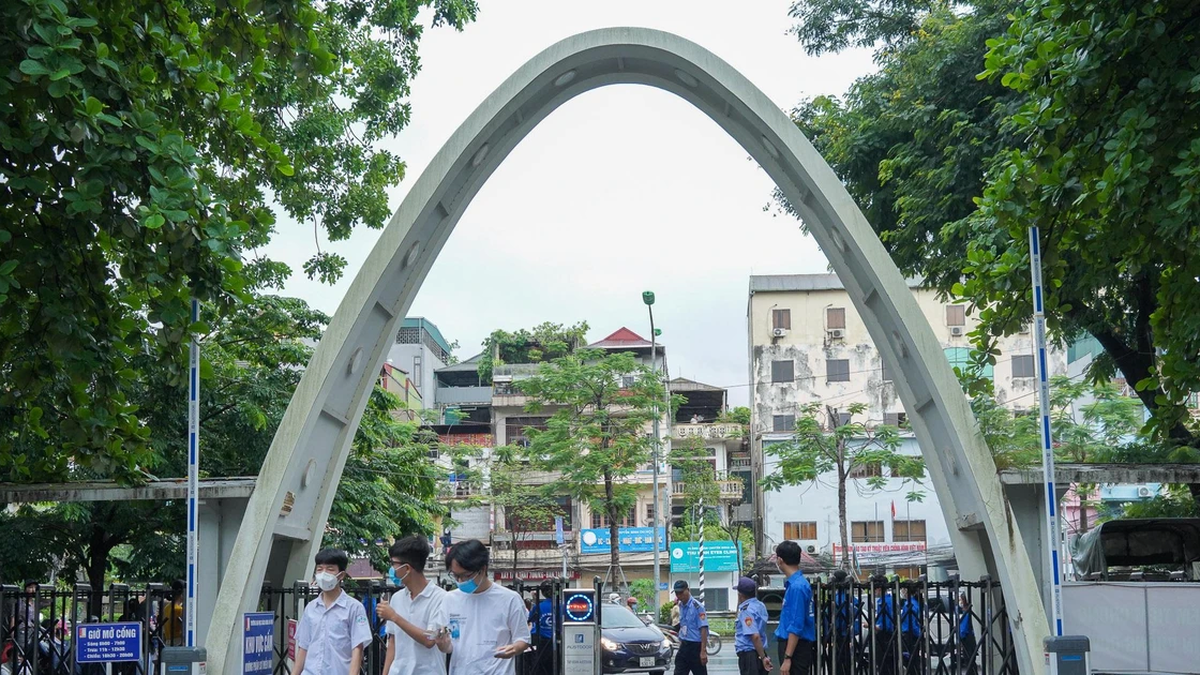
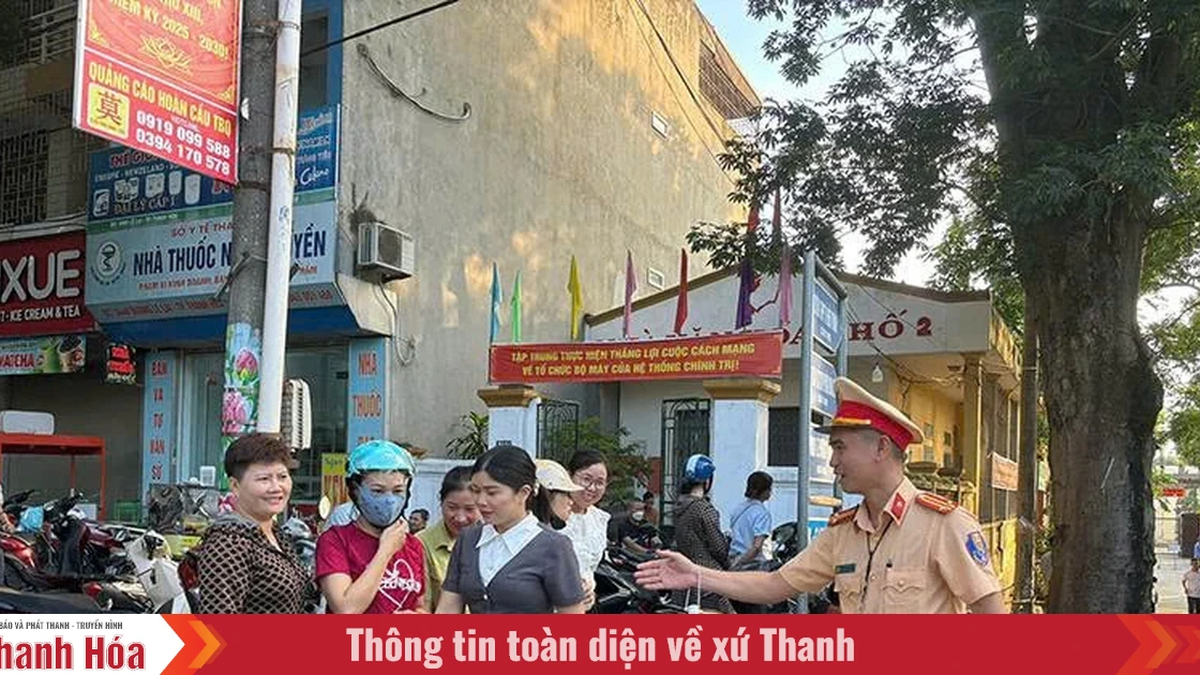

















































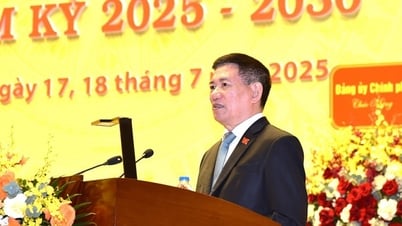













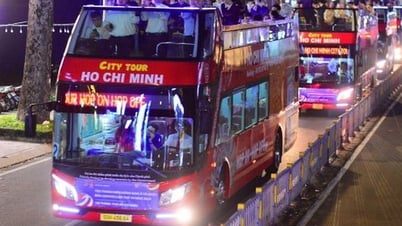

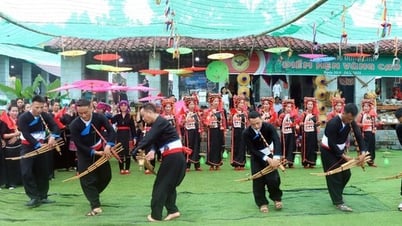











![[Infographic] In 2025, 47 products will achieve national OCOP](https://vphoto.vietnam.vn/thumb/402x226/vietnam/resource/IMAGE/2025/7/16/5d672398b0744db3ab920e05db8e5b7d)














Comment (0)